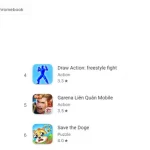Sudoku has only been around since the 19th century, but, with its logic-based puzzles and brainteasers, it has quickly become a popular pastime. The goal of Sudoku is to fill in a 9×9 grid with numbers so that each row, column, and 3×3 subgrid (also known as a “region”) contains all of the digits from 1 to 9.
What makes the game particularly compelling is its ability to be as easy or challenging as you want it to be; both novices and experts can find a stimulating way to enjoy the same set of puzzles.

Once people get a taste of Sudoku, it’s hard not to become addicted – and if you’re already an enthusiast now, you might be eager to share the fun! Showing your family and friends a few interesting tidbits about the history of the game may encourage them to join in your obsession.
Sudoku Facts You Might Not Know About
Some interesting facts about Sudoku include:
- Surprisingly Sudoku was not invented in Japan as popular belief states – instead, its origins actually trace back to France and date back to 1895! The first number puzzles similar to modern Sudoku appeared in La France newspaper then.
- Sudoku wasn’t widely known until it was published as a puzzle in a Japanese newspaper in the early 1980s.
- The name “Sudoku” comes from the Japanese words “su” (meaning “number”) and “doku” (meaning “single”).
- Sudoku is considered a logic puzzle, as it requires players to use their reasoning skills to solve the puzzle.
- Sudoku gained international popularity in the 2004, and is now played by millions of people around the world.
- There are many variations of Sudoku, including different grid sizes and shapes, as well as different number sets (such as letters or symbols).
- There are a few different methods that players can use to solve Sudoku puzzles, including the “single candidate” method, the “hidden single” method, and the “naked pair” method.
- There are international Sudoku competitions where players can compete to see who can solve puzzles the fastest.
- Sudoku has inspired the creation of many similar puzzle games, such as Kakuro and Hashi.
- In 2009, a computer program called “GPT-Sudoku” was created, which was able to solve any Sudoku puzzle in under a second.
- On May 20, 2006, Thomas Snyder of the United States made history when he achieved an astonishing record; completing a ‘Very Easy’ difficulty Sudoku puzzle in only 1 minute 23.93 seconds.
- In 2006, the inaugural Sudoku World Championships were held in Italy, inaugurating a new era of intellectual puzzle-solving challenges.
- It’s highly unlikely that anyone would be able to complete solving all Sudoku puzzles in their lifetime. Just how many puzzles are there? The answer is astounding – more than 1 billion! With numbers like that, it should be easy to understand why this task is so vast.
- It appears that celebrities have taken a liking to the popular number-placing puzzle, Sudoku. Celebrities such as Neil Patrick Harris, Joan Rivers, and Wentworth Miller have openly revealed their devotion and confessed to being addicts of the game.
- Sudoku has become one of the few healthy habits to develop an addiction to, even amongst health professionals advocating its many benefits. Not only does it show the potential to reduce depression and lower blood pressure, but it also offers assistance in combating emotional overthinking, panic, and anxiety by redirecting focus. An additional advantage of this popular pastime is that it can be utilized as a suitable exercise for the brain in those inflicted with Alzheimer’s and Dementia, assisting them in maintaining mental development and alertness.





